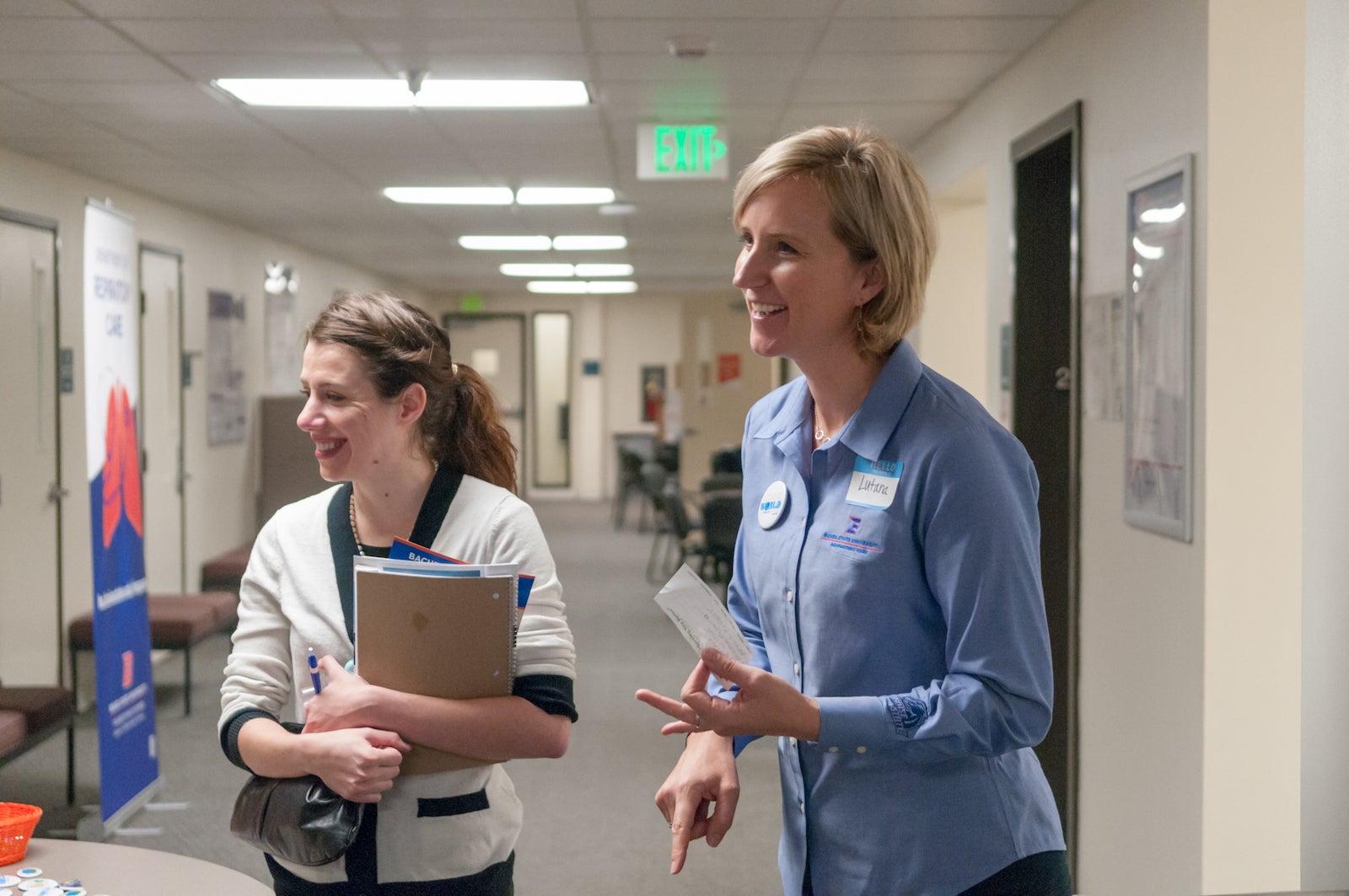
The Department of Respiratory Care‘s online degree advancement program received national recognition by the American Association for Respiratory Care among other institutions like Texas State University, University of North Carolina at Charlotte and University of Cincinnati. In a recent article, AARC highlighted Boise State as offering the fastest-growing and largest bachelor of science in respiratory care program in the country. The online program started in 2007 with nine students and now has 425 while graduating roughly 150 new therapists each year.
The department tailored the program specifically to meet the needs of current respiratory therapists, allowing them to create their own plans based on work, family and personal commitments, as the article highlights.
“Obtaining a BSRC will better prepare graduates for positions of leadership, management, education, research and even advanced clinical practice,” Kristen McHenry, an assistant professor, told AARC. “I like to think of continuing education as an opportunity to demonstrate our knowledge, skillset and overall value to the interprofessional health care team and the communities we serve.”
Boise State is one of only 23 fully accredited degree completion programs in the U.S. Learn more about its innovative program below.
Video: Online RRT-BS Online Degree Advancement Program
Video has closed captions and a transcript is provided on this page.
Video Transcript
[Dr. TJ Wing, Director, BRSC-DAP] Respiratory therapists really work in all aspects that deal with a patient’s ventilation, perfusion, oxygenation. We deal with patient issues for individuals who come into the ER, who might need advanced mechanical ventilation, all the way up to dealing with premature neonates who are currently receiving treatment in the neonatal and intensive care unit. Our Bachelor of Science in Respiratory Care Degree Advancement Program is a bridge program for individuals who have received either an associate’s or an associate of Applied Science and they’re looking to transition from being a registered respiratory therapist into a baccalaureate registered respiratory therapist.
[Krystal Craddock, Alumna] I knew I wanted to get my bachelor’s to better myself and to be able to say I have a bachelor’s in my field of respiratory care. It helps you grow as a person, it helps you grow professionally, and be able to present and speak and know more in in the field of respiratory care.
[Brian Smith, Alumnus] I wanted to earn a bachelor’s degree within respiratory care because I had seen the need for advancement. I had graduated with an associate’s, I was practicing at the bedside at a very high level but I had seen within the industry that there was going to be a need for bachelor degree.
[TJ] Our program is 100% online, we offer 11 classes taught by three different full-time faculty members and approximately 10 adjunct faculty members and we offer two different 7 week sessions every semester.
[Krystal] The Boise State DAP program stood out to me because it’s very flexible which was what I liked a lot about the online learning portion. It’s very affordable which was surprising to me because it is such a great program. Being able to be in California, where I live and work and network with so many other students who are from all over the country, was truly the best part.
[TJ] Many of our programs are still at an associate or an associate of Applied Science level, so it’s more and more important for us to stay competitive with other professions.
[Krystal] I remember going through my associates program very focused on bedside care, clinical care with patients, and then when you get into this Boise State DAP program you look at quality improvement projects, you get to look at teaching, and leadership. So it kind of took it a step further a things that you didn’t really have time to focus on and trying to learn how to become a practicing practitioner, but the DAP program was able to bring me a step further and to look at the whole picture. So, not just patient care, not just direct patient care, but organizationally, what patient care looks like.
